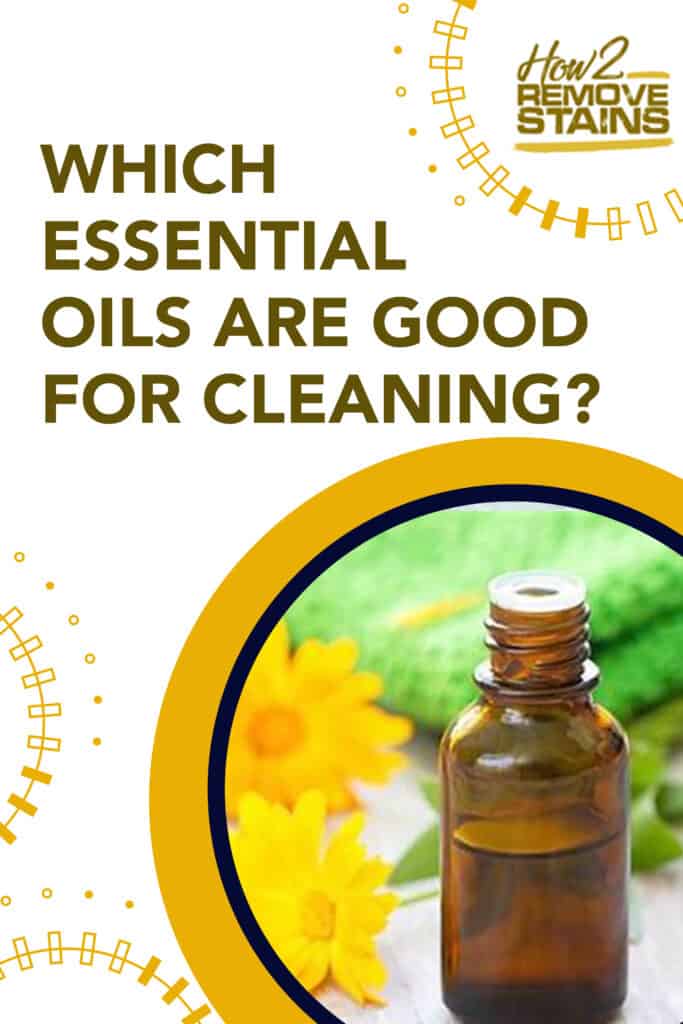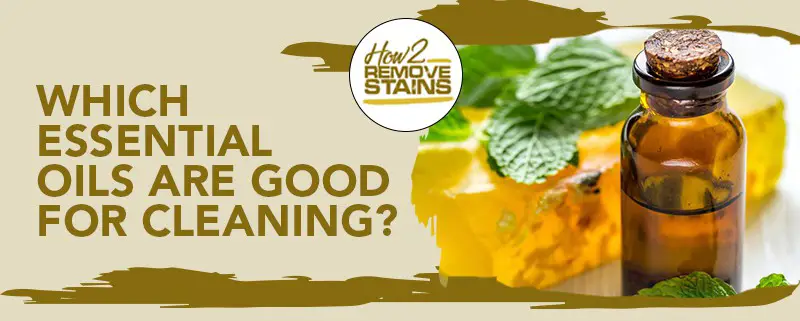Some of the most effective essential oils for cleaning are cinnamon, rosemary, tea tree, eucalyptus, lavender, peppermint, lemon and lime. They can be used on their own or be mixed with other essential oils to get the best possible results.
Essential oils are receiving a lot of praise nowadays for their aromatherapy benefits. However, they can also be used in cleaning due to their antimicrobial qualities. In their purest form, essential oils can destroy viruses, fungus, and bacteria while leaving cleaned surfaces smelling good.
There are plenty of essential oils out there, so picking which one is ideal for cleaning can be challenging. But, worry not. This article will let you know the best essential oils for cleaning and how you can use them.
Table of Contents
Essentials oils used for cleaning
There are a variety of essential oils that are ideal for cleaning, but some are considerably more effective than others. Here are some of the best essential oils for cleaning:
Cinnamon oil
Cinnamon bark, which is used for cinnamon oil production, contains antibacterial and antiviral properties. However, it is one of the most neglected essential oils out there because of its potent smell.
If you are doing a DIY cleaning solution and you do not like using bleach, you can use cinnamon oil as an alternative. It works the same way as bleach, without being a harsh chemical with a strong odor.
Rosemary oil
Rosemary has antibacterial, antioxidant, insecticide, and antifungal properties, making it ideal for cleaning. These are the results of its naturally occurring phenolic compounds, which are commonly used in household products such as mouthwash and cleaners.
Tea tree / melaleuca oil
Melaleuca oil is also known as tea tree oil. It comes from the leaves of Australian tea trees and also contains antibacterial properties, which makes it ideal for cleaning and disinfecting.
Tea tree oil also works well when used against bug bites, skin abrasions, and acne problems. Aside from that, it can also help keep your home smelling pleasant because of its deodorizing features.
Eucalyptus oil
Eucalyptus oil is one of the oldest known natural disinfectants in the world. In terms of cleaning, it is widely used on floors because it can effectively remove dirt, disinfect, and restore its natural sheen.
Lavender oil
Lavender oil is another essential oil that contains natural disinfectant properties. If you notice, most commercial cleaners for bathrooms claim that their products have lavender essence. This is not only because of its fresh floral smell but also because of its sanitizing qualities.
Peppermint oil
Peppermint oil contains antibacterial and antifungal properties. It is also one of the most common ingredients in commercial cleaners because of its cleaning benefit and the relaxing smell it leaves behind.
Lemon oil
Lemon is another oil that contains antimicrobial properties. According to studies, it can even be effective against E.coli bacteria. When used as an essential oil, those properties are concentrated in liquid form. In addition to having antimicrobial properties, lemon oil can help maintain and restore white surfaces, whether it is bathroom tiles or kitchen counters.
Lime oil
Lime is a close cousin of lemon, and it contains almost the same antimicrobial properties. The only difference is its scent. Lime tends to have a more sour note while lemon has a sweeter and more fruity scent.
How to use essential oils for cleaning
If you plan to make your own cleaner with essential oils, it is much easier than you may think. Here are the ingredients and materials that you will need:
- Clean basin
- Dropper
- Your choice of essential oil
- Measuring cup
- ¼ cup of vinegar
- 2 cups water
- A spray bottle (16 oz.)
Follow these steps:
- In a clean basin, pour 2 cups of water together with ¼ cup of vinegar.
- Add 30 drops of the essential oils of your choice. You can choose to use only one type of essential oil or combine a variety of them. However, make sure that the scents don’t conflict with or overpower each other, so you don’t have a problem later on.
- Transfer the mixture to a spray bottle.
You can use your essential oil cleaning solution on kitchen counters, in bathrooms, and on floors. If you are cleaning a large area, you can double the quantity of the ingredients mentioned above and opt for a bigger spray bottle.
Frequently asked questions about essential oils
What essential oils have antibacterial properties?
Some essential oils show evidence of having properties that kill bacteria. Studies show that oils such as orange, peppermint, eucalyptus, and lemongrass are proven to be effective against 22 strains of bacteria.
What essential oils have antifungal properties?
Examples of oils that contain anti-fungal properties are peppermint, eucalyptus, lemongrass, geranium, tea tree, and citronella. Their antifungal properties make them not only ideal for cleaning but also for treating fungal disease on the skin.
What essential oils have antiviral properties?
Some of the most effective essential oils that contain antiviral properties are eucalyptus, tea tree, and thyme. According to the Medical Journal Phytotherapy Research, when these three oils are combined, they reduce 96% of virus spread.
How much essential oil do you need for cleaning?
If you are worried about a strong scent, putting 3 to 5 drops of essential oil in your cleaning solution will improve its cleaning properties. However, to get its maximum benefit, the ideal amount of essential oil for 3 cups of cleaning solution is between 10 to 20 drops.
Is it okay to mix essential oil?
Mixing essential oils is fine. Doing so can boost the cleaning and sanitizing capabilities of your cleaner. There is no right or wrong way to mix your essential oils for cleaning. You can add a bit more or less essential oil needed in the cleaning recipes according to your preference.
Final thoughts
Essential oils are not only for aromatherapy. They also have plenty of beneficial properties, making them effective against bacteria, viruses, fungi, and other harmful pathogens. Adding a few drops of oils to your cleaning solutions, whether it is DIY or commercial grade will boost its effectiveness and add a long-lasting pleasant smell on the cleaned surface.


